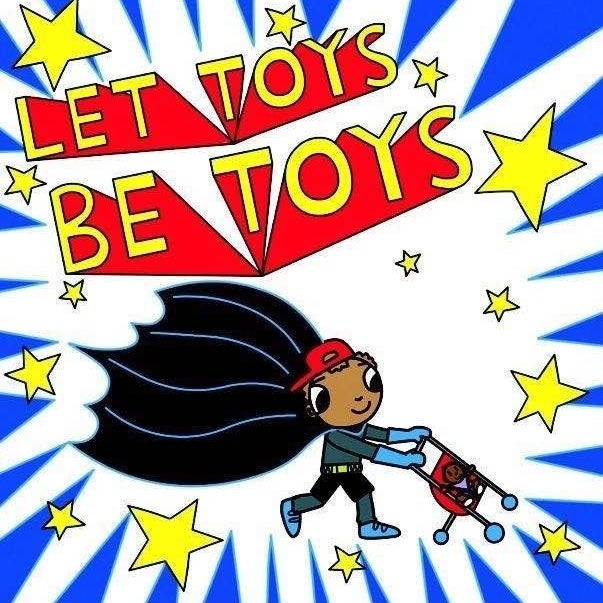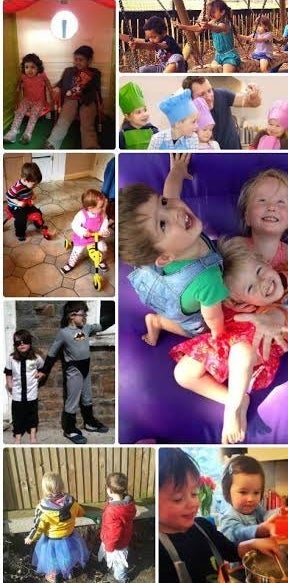Let Toys Be Toys is an online campaign that aims to stop the toy industry promoting toys as only being suitable for certain genders.
Well this just says it all really. @letclothesbe
Spokesperson Megan Perryman told BuzzFeed News: "The campaign started as a thread on parenting forum Mumsnet. We were complaining about gendered signs in toyshops and it just sort of took off from there!"
The campaign is "spread out across the UK, campaigning in amongst work and childcare," Perryman, who has a 7-year-old daughter and a 3-year-old son, said. "This means that members come and go depending on commitments, but there's usually around 10 of us who are active.
"We're spread out across the UK – mostly mums but we also have members who are men or don't have children. Most of us work or study, and fit campaigning around that."
"We decided to start with a very focused aim – to persuade UK retailers to stop explicitly signposting toys for boys or girls."
At last! Now we don't have to make the girls leave the room when we play @hasbrouk Monopoly HT @DaveMedlo
"Since then we've also targeted publishers and manufacturers and have produced a resource pack for schools," she added.
Perryman said it was "relatively easy to tackle blatant sexism where 'boy' and 'girl' labels are used".
Just a reminder that @Tesco have apologised & will remove the sign. Let us know if you spot others cc @karlou
"What's harder is challenging the more subtle ways of telling children what they should like, such as pink/blue colour-coding or where toys are placed in store," she said.
She said the campaign still faces a battle to prove why it matters.
Come on @SmythsToysUK Girls are nurses, boys are doctors? Surely you can do better than this?
"The most common stereotype is that boys and girls are completely different species – and that there is one way to be a boy and one way to be a girl," Perryman said.
"The idea is that boys are loud, naughty, smelly, sporty, brave, and hate books but love science; whereas girls are quiet, attractive, humourless, and like sparkles and domesticity. We know that's not true – my daughter and son are very similar and we have countless stories of doll-loving boys and science-loving girls sent to us every day."
"Probably most important is that we've initiated a national debate on gendered marketing, and customers are starting to question the validity of these techniques."
Another nonsensically gendered item that is #notaprilfools
However, there is "still a lot to do", Perryman said. "The misconception of boys and girls being completely different runs right through the marketing and media industries – with ridiculous assumptions such as boys being unable to empathise with female characters affecting films, books, and related merchandise."
And, she added, there "are also many people who see gendered marketing as a 'first world problem' rather than connecting it to a much bigger picture of inequality".
The group has introduced a "Toymark" to celebrate good practice.
Be careful what you let them play with...
"The biggest battle was when we started out, nobody seemed to be talking about this topic and retailers would flatly refuse to make changes," Perryman told us. "The first to change were Boots and Tesco, and suddenly other retailers started to realise that public opinion was changing – using sexism to sell to children simply isn't in fashion any more."
The campaign claims to have had great success so far.


Perryman told us it could claim "a 60% reduction in UK stores explicitly signposting toys for boys or girls (and a 46% reduction online), as well as major publishers such as Usborne, Ladybird, and Dorling Kindersley agreeing to stop labelling children's books by gender." She also cited support in the media and from authors themselves for the books campaign.
